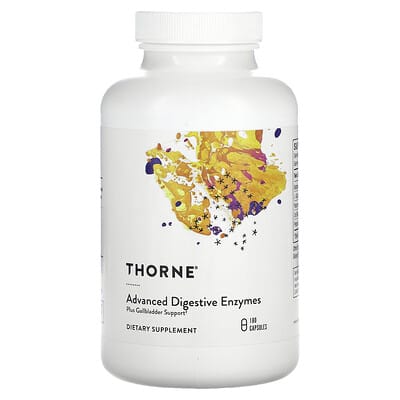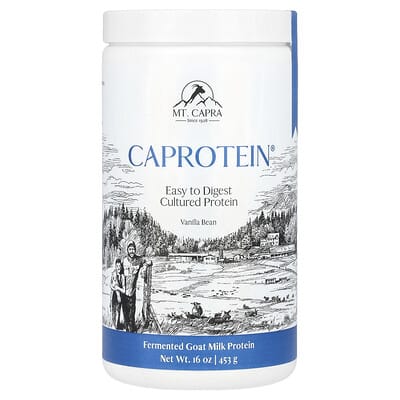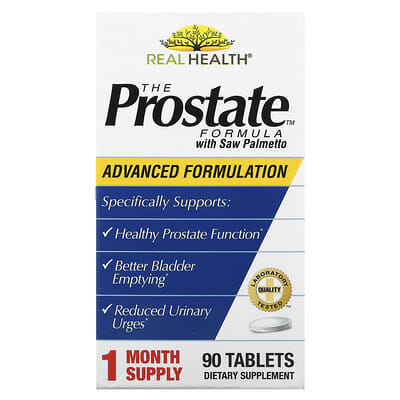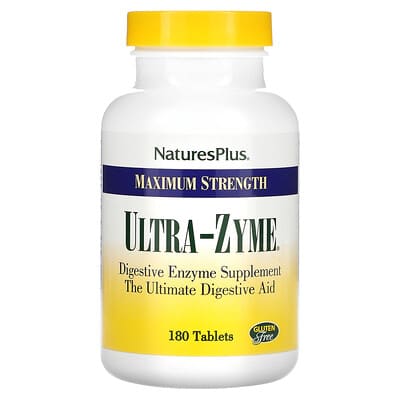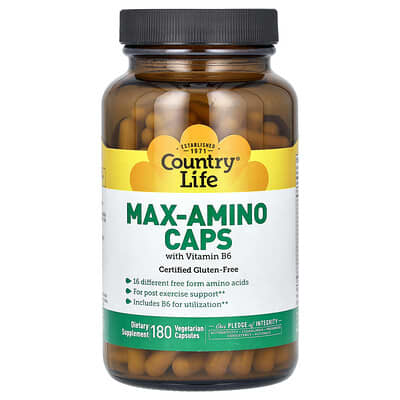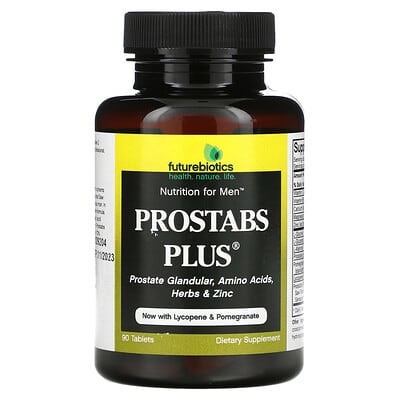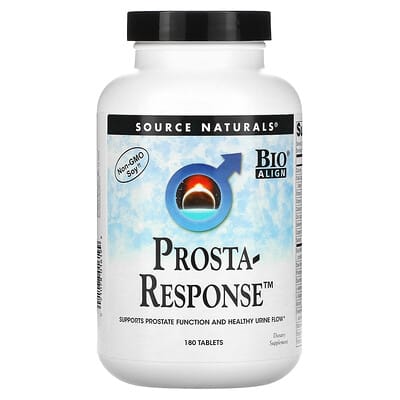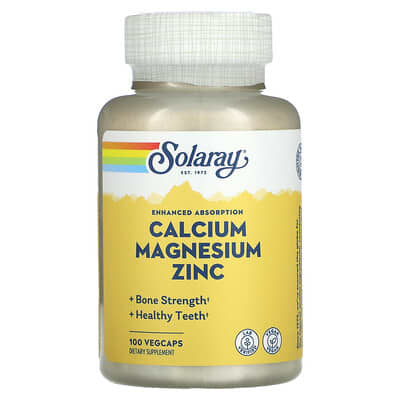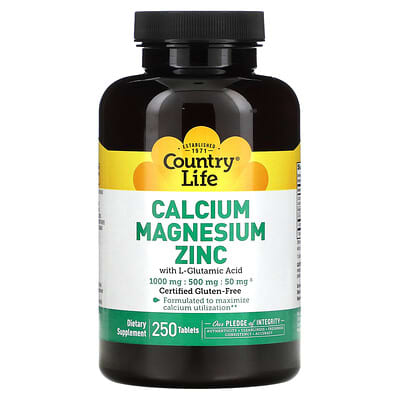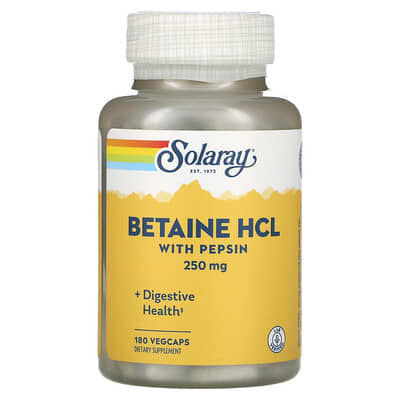Balancing the Brain's 'On' Switch: The 10 Best Glutamic Acid Supplements for Cognitive Focus
Balancing the Brain's 'On' Switch: The 10 Best Glutamic Acid Supplements for Cognitive Focus

Understanding Glutamic Acid and Its Role in the Brain
Glutamic acid is a fascinating and vital component of our biology, playing a central role in everything from metabolism to brain function. As the precursor to glutamate, the most abundant excitatory neurotransmitter in our nervous system, it's essential for learning, memory, and overall cognitive performance. This article provides an evidence-based examination of glutamic acid, its function, and the supplements that contain it.
Here’s a quick summary of what we'll cover:
- The Science of Glutamate: We explore how glutamic acid becomes glutamate and acts as the brain's primary 'on' switch, facilitating communication between nerve cells.
- The Importance of Balance: We discuss why too much glutamate can be harmful (a state called excitotoxicity) and how the body naturally regulates its levels.
- Supplementation Reality Check: We analyze the scientific evidence—or lack thereof—for taking glutamic acid supplements specifically to boost cognitive focus.
- Top 10 Product Reviews: We review ten supplements that contain glutamic acid, evaluating them based on their overall formula, intended purpose, and value, rather than as direct cognitive enhancers.
Glutamate: The Brain's Primary Accelerator
Think of your brain as a complex network of switches. For a thought to form, a memory to be recalled, or a lesson to be learned, these switches need to be flipped 'on'. The molecule responsible for much of this action is glutamate. Glutamic acid, a non-essential amino acid (meaning our bodies can produce it), is the direct precursor to this crucial neurotransmitter. When glutamic acid is present in the central nervous system, it readily converts to glutamate.source-1
Synaptic Plasticity, Learning, and Memory
Glutamate's primary job is to excite neurons, making them more likely to fire and transmit a signal. This process is fundamental to synaptic plasticity—the ability of synapses (the connections between neurons) to strengthen or weaken over time. This strengthening is the biological basis for learning and memory. When you learn something new, glutamate helps forge and solidify those neural pathways. Studies have consistently shown that proper glutamate signaling is indispensable for cognitive functions. Disruptions in this system are often linked to cognitive deficits and neurological disorders.source-2
The Risk of Too Much of a Good Thing: Excitotoxicity
While glutamate is essential, balance is key. If glutamate levels become too high, neurons can become overstimulated. This can trigger a cascade of intracellular events that lead to cell damage and death, a process known as excitotoxicity. Your brain has elegant systems in place to prevent this, including the glutamate-glutamine cycle, which swiftly removes excess glutamate from the synapse and converts it into glutamine, a safer, non-excitatory amino acid. This tight regulation is why the direct supplementation of high-dose glutamic acid for cognitive enhancement is not a common or well-supported practice; the risk of disrupting this delicate balance is a significant concern for researchers.source-3source-4
Glutamic Acid vs. Glutamate vs. L-Glutamine
It's easy to confuse these three. Glutamic Acid is the amino acid you find in food and some supplements. Glutamate is the form it takes in the body when it acts as a neurotransmitter. L-Glutamine is another amino acid; the brain uses it as a precursor to create glutamate on-demand and as a way to safely transport it, helping to prevent excitotoxicity. L-Glutamine supplements are more commonly studied for supporting brain health than pure glutamic acid.

Do You Need a Glutamic Acid Supplement for Focus?
Based on current scientific evidence, the answer for most healthy individuals is likely no. The body is proficient at synthesizing glutamic acid from other sources, and it is abundant in protein-rich foods. There is a lack of robust clinical trials demonstrating that supplemental glutamic acid enhances cognitive focus or memory in the general population. Most nutritional approaches to brain health focus on providing the building blocks for overall neurological function, such as omega-3 fatty acids, B vitamins, and antioxidants, rather than targeting a single neurotransmitter precursor that the body tightly regulates.source-5
Top 10 Supplements Containing Glutamic Acid at a Glance
The following products contain glutamic acid, but it's crucial to note that none are designed as standalone cognitive enhancers. Instead, it is included as part of a digestive enzyme blend (as Glutamic Acid HCl to support stomach acid), a complete amino acid profile, or a comprehensive prostate support formula. We've selected them based on their formulation, brand reputation, and overall value.
| Product | Glutamic Acid amount | Glutamic Acid form | Servings | Price | Price Per Serving |
|---|---|---|---|---|---|
| Thorne Advanced Digestive Enzymes | 480 mg | L-Glutamic Acid Hydrochloride | 90 | $47.70 | $0.53 |
| Mt. Capra Caprotein | 1601 mg | Glutamic Acid | 23 | $43.99 | $1.91 |
| Real Health The Prostate Formula | 250 mg | L-Glutamic Acid | 30 | $15.60 | $0.52 |
| Natures Plus Ultra-Zyme | 200 mg | Glutamic Acid | 90 | $37.35 | $0.41 |
| Country Life Max-Amino Caps with Vitamin B6 | 180 mg | L-Glutamic Acid | 45 | $32.69 | $0.72 |
| Futurebiotics Prostabs Plus | 173 mg | L-Glutamic Acid | 45 | $9.07 | $0.20 |
| Source Naturals Prosta-Response | 150 mg | L-Glutamic Acid | 36 | $51.09 | $1.41 |
| Solaray Calcium Magnesium Zinc | 100 mg | Glutamic Acid Hydrochloride | 25 | $12.69 | $0.50 |
| Country Life Calcium Magnesium Zinc | 100 mg | L-Glutamic Acid | 83 | $19.19 | $0.23 |
| Solaray HCl with Pepsin | 100 mg | Glutamic Acid Hydrochloride | 180 | $19.69 | $0.10 |
1. Thorne Advanced Digestive Enzymes
Thorne offers a high-potency digestive support formula. It contains the highest dose of L-Glutamic Acid Hydrochloride on our list. Here, its role is not for brain health but to help create an acidic environment in the stomach, which is necessary for proper protein digestion and pepsin activation. It's a specialized product for those seeking digestive support.
Advanced Digestive Enzymes
- High dose of Betaine HCl and L-Glutamic Acid HCl for stomach acid support.
- Contains Pancreatin and Ox Bile for fat and protein digestion.
- From Thorne, a brand highly trusted by healthcare practitioners.
- Not intended for cognitive focus.
- Ingredients are from a porcine (pork) source, making it unsuitable for some diets.
- Should not be used by individuals with stomach ulcers. Consult a healthcare professional before use, especially if you have acid reflux.
2. Mt. Capra Caprotein
This product technically has the highest amount of glutamic acid per serving, but it's important to understand the context. Caprotein is a goat milk protein powder. The 1601 mg of glutamic acid is naturally occurring as part of the complete protein profile. This illustrates how abundant this amino acid is in whole food sources. It's a great option for a protein supplement, not a targeted glutamic acid supplement.
Caprotein
- Provides a full spectrum of naturally occurring amino acids.
- Goat milk protein can be easier to digest for some people compared to cow milk protein.
- Excellent source of high-quality protein.
- The glutamic acid is not a separate, added ingredient.
- Higher price per serving compared to others on this list.
- Contains milk derivatives, a common allergen.
3. Real Health The Prostate Formula
This is a targeted formula for men's prostate health. It includes a blend of L-Glutamic Acid, L-Glycine, and L-Lysine Hydrochloride, alongside vitamins, minerals, and herbal extracts like Saw Palmetto. The inclusion of glutamic acid here is based on traditional use in amino acid blends for prostate support, rather than cognitive function.
The Prostate Formula
- Comprehensive formula with ingredients well-researched for prostate health.
- Includes key minerals like zinc and selenium.
- Good value for a specialized supplement.
- Highly specific formula that is not relevant for women or men without prostate concerns.
- The role of the amino acid blend is secondary to the herbal extracts.
- Intended for men only. Consult your doctor before use, especially if you have a medical condition.
4. Natures Plus Ultra-Zyme
Similar to the Thorne product, Natures Plus Ultra-Zyme is a powerful digestive enzyme tablet. It provides a significant 200 mg dose of glutamic acid alongside a vast array of enzymes like Pancreatin, Bromelain, and Papain. Its function here is to support the breakdown of food, particularly proteins. It also contains probiotics for gut health.
Ultra-Zyme
- Extremely broad-spectrum enzyme formula.
- Includes probiotics (Lactobacillus acidophilus) for gut flora support.
- Substantial dose of glutamic acid for its intended digestive purpose.
- Complex formula may not be suitable for those with specific sensitivities.
- Servings size is two tablets.
- Not for use by those with stomach ulcers. Keep refrigerated after opening to preserve probiotic viability.
5. Country Life Max-Amino Caps with Vitamin B6
This supplement from Country Life provides a balanced profile of free-form amino acids, including 180 mg of L-Glutamic Acid per serving. The formula is designed to deliver amino acids that can be readily absorbed and utilized by the body for various functions, such as muscle repair and neurotransmitter production. The inclusion of Vitamin B6 is strategic, as it's a critical cofactor in many amino acid metabolism pathways.
Max-Amino Caps with Vitamin B6
- Provides a comprehensive blend of essential and non-essential amino acids.
- Includes Vitamin B6 to aid in amino acid utilization.
- Capsule form is convenient.
- Serving size is four capsules, which may be inconvenient for some.
- Not specifically formulated for cognitive support, but for general amino acid supplementation.
- Consult a doctor before use if you are pregnant, nursing, or have a medical condition, particularly kidney issues.
6. Futurebiotics Prostabs Plus
Another men's health formula, Prostabs Plus by Futurebiotics offers a solid 173 mg of L-Glutamic Acid in combination with L-Alanine and L-Glycine. This product is an excellent value and provides a blend of herbs, minerals, and amino acids targeted at supporting prostate health and function.
Prostabs Plus
- Very budget-friendly price per serving.
- Includes lycopene and pomegranate extract, two well-regarded antioxidants.
- Good dose of zinc, a key mineral for male health.
- Specialized for men's prostate health.
- Contains bovine-derived glandular tissue, which may not be suitable for all.
- Exclusively for use by adult men. Always consult with a healthcare provider before starting any new supplement regimen.
7. Source Naturals Prosta-Response
Source Naturals provides a premium, comprehensive prostate support supplement. Prosta-Response includes 150 mg of L-Glutamic Acid as part of its amino acid blend. The formula is extensive, featuring high-potency extracts of Saw Palmetto and Stinging Nettle root, phytosterols, and antioxidants. It's a robust product for those seeking a high-end option in this category.
Prosta-Response
- Very comprehensive and high-potency formula.
- Contains clinically researched ingredients like Saw Palmetto extract and phytosterols.
- Includes a broad range of supporting vitamins and minerals.
- High price per serving.
- Large serving size of multiple tablets.
- Formulated for men. Contains soy. Speak with your doctor before use.
8. Solaray Calcium Magnesium Zinc
This mineral complex from Solaray is a popular choice for bone and muscle health. It includes 100 mg of Glutamic Acid Hydrochloride. While the label does not explicitly state its purpose, Glutamic Acid HCl is often used in mineral formulas to potentially aid in the absorption of minerals like calcium by helping to acidify the stomach environment.
Calcium Magnesium Zinc
- Provides three key minerals in one convenient formula.
- Uses multiple forms of calcium and magnesium for potentially better absorption.
- Excellent customer review rating, indicating high user satisfaction.
- Large serving size of four capsules.
- The role of glutamic acid is for absorption support, not as a primary ingredient.
- Taking high doses of zinc long-term can interfere with copper absorption. Ensure your overall intake is balanced.
9. Country Life Calcium Magnesium Zinc
Country Life's mineral formula is another excellent option for foundational support. It contains 100 mg of L-Glutamic Acid. Like the Solaray product, its inclusion here is likely intended to support the digestive environment for optimal mineral uptake. This product offers exceptional value with 83 servings per bottle.
Calcium Magnesium Zinc With L-Glutamic Acid 1000 mg : 500 mg : 50 mg
- Excellent value with a low price per serving.
- Certified gluten-free and vegetarian.
- Provides a 2:1 ratio of calcium to magnesium, a commonly recommended balance.
- Large tablets can be difficult for some to swallow.
- Uses magnesium oxide, which some find less bioavailable than other forms.
- Consult your doctor before use, especially if you have kidney problems or are on medication.
10. Solaray HCl with Pepsin
This is a straightforward digestive aid from Solaray. It combines Betaine HCl with Glutamic Acid HCl and Pepsin, an enzyme that breaks down protein. The formula is designed to supplement the stomach's natural production of hydrochloric acid, promoting efficient digestion. It's a highly targeted and very affordable option.
HCl with Pepsin
- Simple, targeted formula for digestive support.
- Excellent price per serving, providing great value.
- Includes pepsin to work synergistically with the HCl.
- Solely for digestion; offers no other benefits.
- Contains ingredients derived from pork.
- Do not take if you have stomach ulcers or a history of them. Not intended for long-term use without professional guidance.
Foods Rich in Glutamic Acid
You don't need a supplement to get glutamic acid. It's one of the most common amino acids in our diet. High-protein foods are excellent sources, including meat, poultry, fish, eggs, and dairy products. Plant-based sources include soy products (like tofu and edamame), mushrooms, ripe tomatoes, and fermented foods. The savory 'umami' flavor is often a direct result of free glutamate.
Frequently Asked Questions
They are very closely related. Monosodium glutamate (MSG) is the sodium salt of glutamic acid. When MSG is dissolved in water (or saliva), it separates into free sodium and glutamate, which is the same molecule that acts as a neurotransmitter in your brain. This is why it provides the 'umami' taste.
Yes, absolutely. Glutamic acid is a non-essential amino acid, meaning your body can produce it on its own. It is also incredibly abundant in virtually all protein-containing foods. A balanced diet provides more than enough for the body's needs.
The low doses found in most multivitamin or digestive supplements are generally considered safe for healthy individuals. However, high-dose supplementation is not well-studied and could theoretically disrupt the brain's delicate glutamate balance. It's always best to consult with a healthcare professional before taking any new supplement, especially if you have a pre-existing health condition.
L-glutamine is more commonly supplemented for cognitive and gut health. It can cross the blood-brain barrier more easily than glutamate and acts as a precursor that the brain can convert to glutamate as needed. This provides a more regulated way of supporting the glutamate system without the direct risk of excitotoxicity. However, robust evidence for cognitive enhancement from L-glutamine in healthy people is still developing.
The Final Verdict on Glutamic Acid for Cognitive Focus
Glutamate is undeniably a cornerstone of cognitive function, essential for the very processes of learning and memory. However, this scientific truth does not automatically translate into a recommendation for glutamic acid supplementation. The body's system for managing glutamate is highly regulated for a reason—to prevent the neuronal damage that can result from excess. The market reflects this reality; there are no mainstream, high-dose glutamic acid supplements marketed for focus. Instead, it is found in modest amounts within broader formulas designed for digestive health, prostate support, or general mineral absorption.
Here are the key takeaways:
- Essential but Regulated: Glutamate is the brain's main 'on' switch, but its levels are tightly controlled to prevent harm.
- Diet is Sufficient: Glutamic acid is a non-essential amino acid abundant in a normal, protein-rich diet.
- No Evidence for Focus: There is no strong clinical evidence to support taking glutamic acid supplements for cognitive enhancement in healthy individuals.
- Context is Key: The supplements on our list use glutamic acid for specific purposes like digestion (as HCl) or as part of a complete amino acid profile, not for direct brain-boosting effects.
Sources
- Glutamate as a Neurotransmitter in the Healthy Brain (2020) — link [Journal Article]
source-1 - The role of glutamate in cognitive function (2010) — link [Journal Article]
source-2 - Glutamate excitotoxicity in neuroscience (2013) — link [Journal Article]
source-3 - The Glutamate/GABA-Glutamine Cycle: A Tale of Two C's (2018) — link [Journal Article]
source-4 - Nutritional and Botanical Approaches to Brain Health (2021) — link [Journal Article]
source-5
